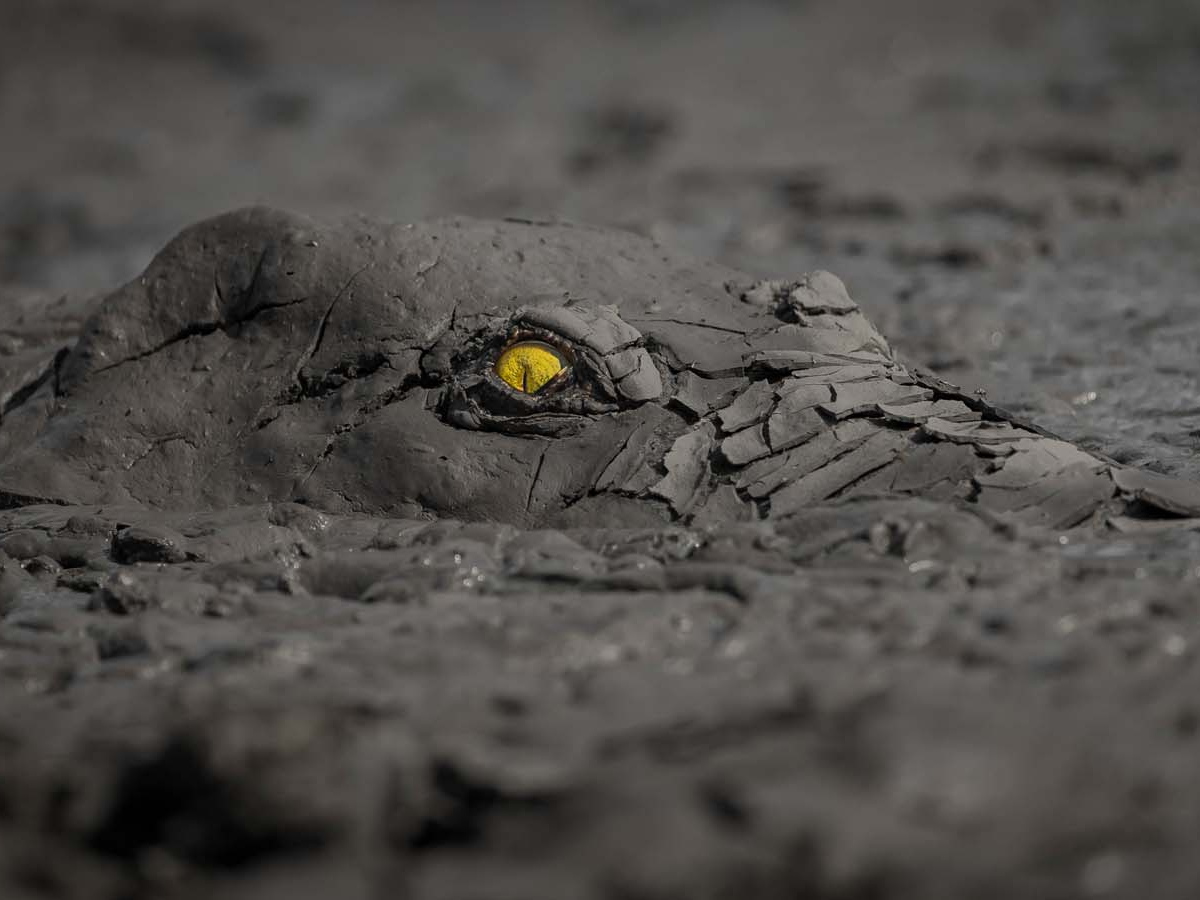- The German Society for Nature Photography (GDT) announced the winner of its contest for the best nature photo of the year.
- Over 5,000 photos were submitted to the contest across 7 categories, with only 70 photos winning top prizes.
- The winners include everything from sweeping landscapes to close-up shots of water droplets, and Peter Lindel won the overall award for 2020 for his photo “A hare’s dream.”
- You can see all the winning photos on the GDT’s website here.
- Visit Insider’s homepage for more stories.
Peter Lindel was named the GDT Nature Photographer of the Year for 2020 thanks to this photo titled “A hare’s dream.”

Lindel’s candid shot of a hare in a meadow won him the top prize, as well as first place in the mammals category. The soft morning light and inquisitive look of the hare is particularly striking.
“The European hare, once a common inhabitant of open country all over Germany, has become a rare sight,” Lindel said of the animal he captured, as stated in a GDT press release.
Lindel added: “While the large number of hares that I used to spot every morning on my way to work in the fields and meadows north of Dortmund, prompted me twelve years ago to explore this area with my camera, it has now become increasingly time-consuming to find hares and present them in an appealing photograph.”
Mohammad Murad’s silhouette shot of an Arabian red fox earned him second place in the mammals category.

The image, titled “Glowing fox,” depicts a fox looking at city lights.
The juxtaposition of an urban environment and a wild animal speaks volumes even though the photo itself is quite simple.
"Curious glances," captured by Jan Piecha, took fourth place in the mammals category.

The inquisitive raccoons seem to be crawling toward the camera in Piecha's photo, making the viewer feel like they're interacting with the animals.
The dark surroundings make the camera's flash look like a spotlight.
The contrasting colors in Benjain Waldmann's "Magic Light" earned him first place in the landscape category.

Waldmann captured the ever-changing qualities of nature, showcasing moving clouds and a tree in transition.
The orange mist of light gives the photo an ethereal feel.
The sky overwhelms the land in Jose Fragozo's "Masai Mara sky."

The photo, which earned second place in the landscape category, highlights storm clouds and a blooming rainbow, creating a dynamic photo that reveals more the longer you look at it.
The small tree in the shot conveys the scale of the clouds.
Axel Gomeringer's "Yukon gold rush" came in fifth for the landscape category because of its bright colors and details.

Gomeringer's photo captures miles of mountains, with the valleys having a gold tinge that makes the area appear otherworldly.
You can easily imagine this landscape in a fantasy film.
This arresting photo of a crocodile earned Jens Cullmann first place in the other animals category.

Titled "Danger in the mud," the image conveys the close relationship the crocodile has with its surroundings, with the muddy water seeming to become one with its scales.
Henry Jager's "School of mackerel" calls attention to the bustling nature of sea life.

The photo, which won third place in the other animals category, takes the audience into a school of fish, illuminating an often hard-to-grasp part of life for humans.
The subtle difference between the color of the fish and the sea itself underscores their connection to the ocean.
Jan Piecha won first place in a category called nature's studio with this photo that's full of contrast.

Piecha used a sparkler to create dramatic contrast in "Flooded with light," capturing a bird in silhouette.
The fog in the photo takes on a yellow tone thanks to the sparkler.
Stephan Fürnrohr also made use of contrast for "The White Coastline."

The picture of Meltwater Lake in Greenland earned Fürnrohr second place in the nature's studio category.
The cracked ground can be seen through the clear water, creating a photo that's both cohesive and divided.
Burkhard Hillert's "Refraction" becomes more mesmerizing once you understand that it shows a cobweb.

Coming in fifth place in the nature's studio category, Hillert's photo shows light being refracted through a cobweb, with a literal rainbow of color erupting out of the image.
The image highlights how much goes on in nature that our naked eyes can't see.
Uwe Hasubek's shot of an Icelandic river came in 10th for nature's studio.

The aerial shot turns the view of the Icelandic river on its head.
The frozen fractals of land in "Iceland going abstract" almost don't look real.
Flurin Leugger captured the chaos of birds in flight, winning him first place in the birds category.

Called "Take Off," Leugger snapped this photo of birds bursting into flight when a coyote startled them.
The picture conveys the emotions the birds are feeling as they move, imbuing it with life and detail despite the blurry nature of the shot.
Hermann Hirsch's "Stony dipper" caught a bird in a moment of quiet.

The photo, which came in third in the birds category, depicts a bird pausing on a rock.
The juxtaposition of light and dark in Christoph Kaula's "Ducks" earned the shot fourth place in the birds category.

Kaula snapped this striking photo on a snowy day, so the trees and birds offer the only color amid the otherwise white area.
Radomir Jakubowski's photo of a dead forest coming back to life was awarded first place in the plants and fungi category.

At first glance, Jakubowski's photo, called "New life in a dead forest," looks like it's just a wide shot of a forest of dead trees, but one living tree catches the eye the longer you look.
The tip of the tree poking out against the blue mist surrounding the area speaks volumes.
The aptly named "Fairytale world," taken by Florian Smit, came in fifth in the plants and fungi category.

Smit's close-up shot of mushrooms makes the fungi look oversized, creating the illusion that they might be tree-sized compared to the viewer.
The blurry background increases the mystical feel.
The special category for the 2020 awards was water, and Britta Strack took home first place with this photo.

Strack's "The play of water" looks as if it has multiple waterfalls within it, offering a dizzying view of the flowing water.
The image also captures the colors of the environment beautifully.
Sandra Bartocha took second place in the water category for "Milk and honey."

The reflection of the sun bathes the sea in color in this photo, allowing the viewer to see its depth.
The building wave makes the photo even more dynamic.
Birgit Potthoff's "Collision" takes the concept of a close-up to a new level.

Winning third place in the water category, "Collision" shows the viewer what overlapping dew looks like in the morning at a very close angle.
The interweaving web of droplets encourages the viewer to keep looking at the image, as they hope to find out more about it.
And Christian Wappl's "Poseidon's Wrath" came in fourth in the water category.

The aerial shot of the flowing water speaks to the scale of the ocean, with the detail of the roaring waves grabbing the viewer's attention.
But the darker portions of the image are just as intriguing, showcasing the ever-changing nature of the ocean.
You can see all of the German Society for Nature Photography members' contest winners here.
- Read more:
- A self-taught artist is cheering up her neighbors by drawing characters like Pooh Bear and Moana on her sidewalk
- A travel photographer is creating miniature landscapes out of food and other household items
- A couple gave their bathroom a makeover inspired by 'The Office,' and it deserves its own Dundie Award
- A couple who loves 'Harry Potter' modeled 100 years of Hogwarts fashion on TikTok, and even J. K. Rowling approves

